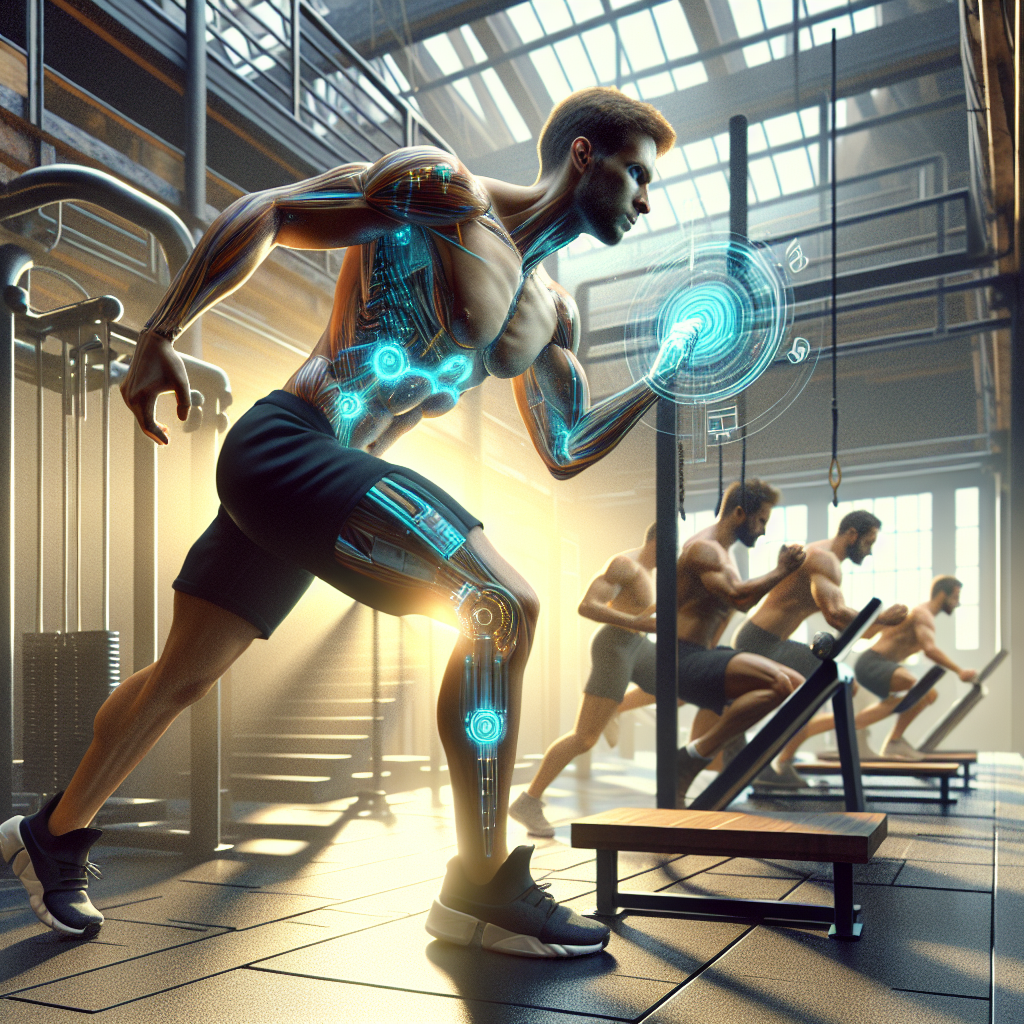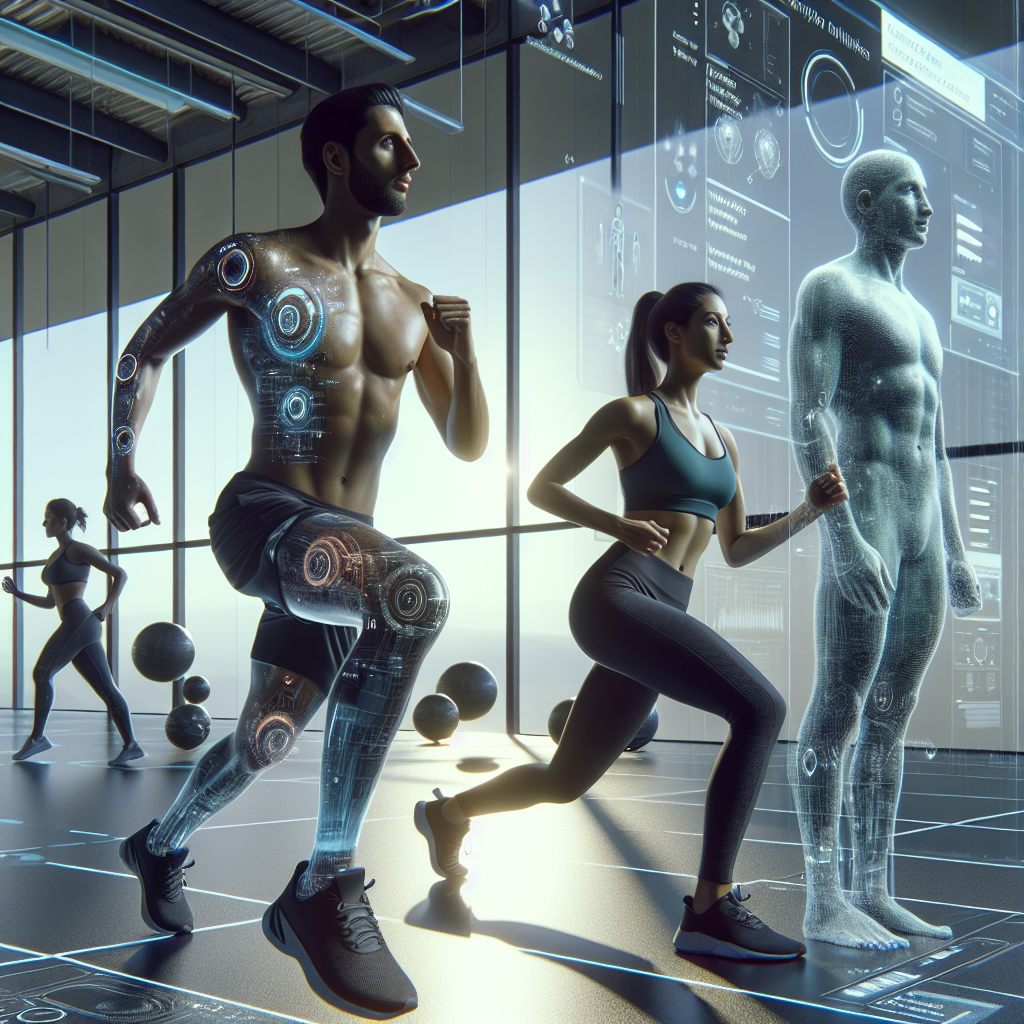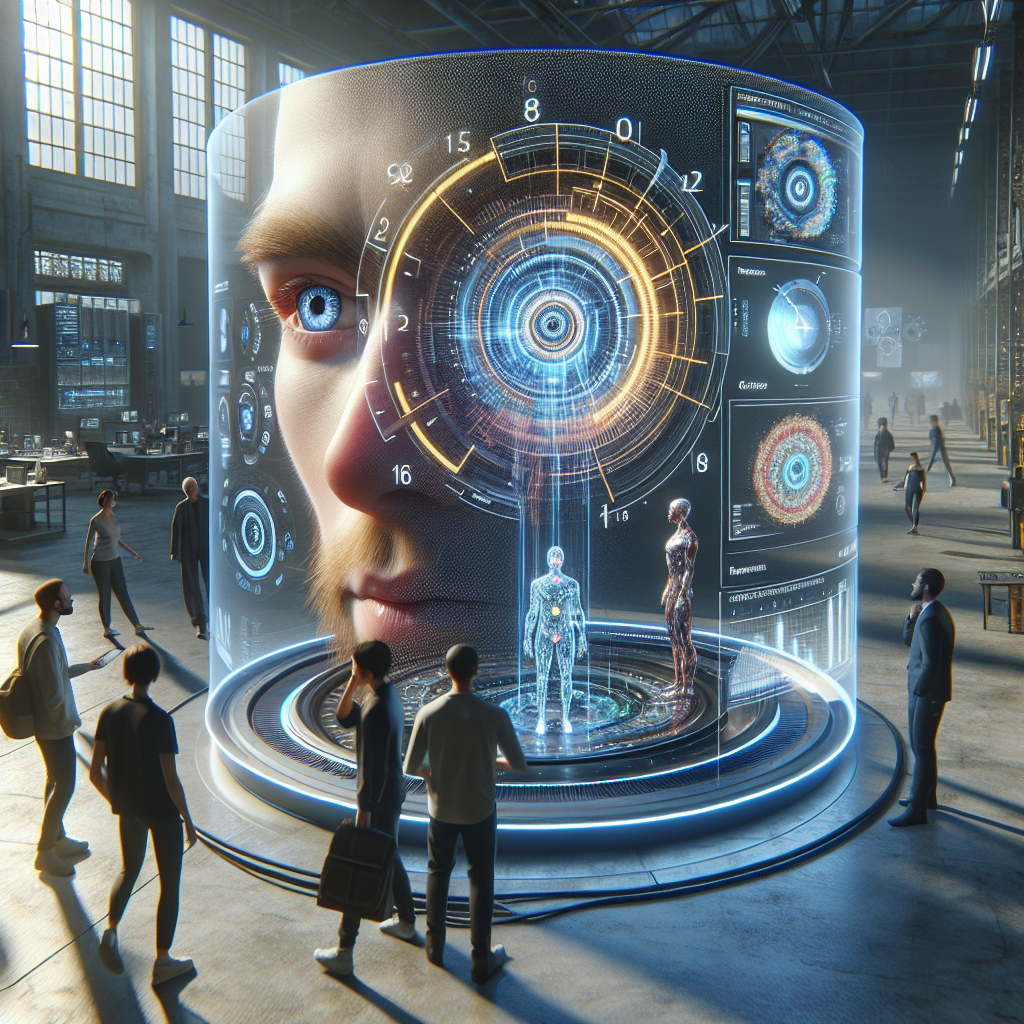AI-driven fitness apps are transforming personal health by providing customized fitness plans, real-time feedback, and motivation, thus enhancing user engagement and outcomes. These applications leverage artificial intelligence to analyze user data, deliver personalized recommendations, and optimize workouts, significantly impacting how individuals approach their fitness journeys. This in-depth exploration will delve into how these apps are reshaping personal health, supported by statistics, expert insights, and real-world examples.
The Rise of AI in Fitness: A New Era for Personal Health
The advent of artificial intelligence in the fitness industry marks a new era for personal health management. As technology becomes more integrated into our daily lives, AI-driven fitness apps have emerged as powerful tools that cater to individual needs. Unlike traditional fitness programs, these apps offer a unique blend of convenience, personalization, and efficiency.
The Evolution of Fitness Technology
The fitness industry has evolved significantly over the past few decades. Initially dominated by gyms and personal trainers, the sector has seen a shift toward digital solutions. The introduction of wearable technology, such as fitness trackers, set the stage for AI-driven applications.
Today, these apps go beyond tracking steps and calories. They incorporate AI algorithms to provide tailored workout plans, nutritional guidance, and even mental health support. This evolution reflects a broader trend toward personalized healthcare solutions.
Historical Milestones
- 1980s: Emergence of home workout videos and basic fitness tracking devices.
- 2000s: Rise of online fitness communities and digital workout programs.
- 2010s: Introduction of wearable technology and mobile fitness apps.
- 2020s: Proliferation of AI-driven fitness applications with advanced features.
AI and Personalization: The Core of Modern Fitness
One of the most significant impacts of AI-driven fitness apps is the level of personalization they offer. By analyzing user data, these apps provide customized workout plans that align with individual goals, fitness levels, and preferences.
For instance, an AI-powered app can adjust the intensity of exercises based on user performance data. This adaptability ensures that users remain challenged and motivated, reducing the likelihood of plateauing or losing interest.
How AI-Driven Fitness Apps Work
Understanding the mechanics of AI-driven fitness apps is crucial to appreciating their impact on personal health. These applications leverage various AI technologies to deliver a seamless and personalized user experience.
Data Collection and Analysis
At the heart of AI-driven fitness apps is data collection. These apps gather information from multiple sources, including:
- Wearable devices (e.g., heart rate, steps, sleep patterns).
- User input (e.g., age, weight, fitness goals).
- Environmental data (e.g., weather conditions, location).
Advanced algorithms analyze this data to create a comprehensive user profile, which informs the app’s recommendations and insights.
Machine Learning and Predictive Analytics
Machine learning is a subset of AI that enables these apps to improve over time. By analyzing past user behavior and outcomes, the app can predict future performance and adjust recommendations accordingly.
For example, if a user consistently struggles with a particular exercise, the app might suggest modifications or alternative workouts to ensure continued progress.
Real-Time Feedback and Adaptation
Real-time feedback is a hallmark of AI-driven fitness apps. These applications provide immediate insights into user performance, allowing for on-the-fly adjustments. This capability is particularly beneficial for maintaining proper form and maximizing workout efficiency.
Moreover, real-time feedback serves as a motivational tool. Users receive instant rewards and encouragement, fostering a sense of achievement and accountability.
Case Study: MyFitnessPal
MyFitnessPal is a popular AI-driven app that exemplifies the power of real-time feedback. By tracking dietary intake and exercise, the app provides users with immediate insights into their calorie balance and nutritional intake.
| Feature | Benefit |
|---|---|
| Calorie Tracking | Helps users monitor and manage their daily intake. |
| Exercise Logging | Allows users to track workouts and see caloric expenditure. |
| Community Support | Encourages user engagement and motivation through social interaction. |
The Benefits of AI-Driven Fitness Apps
The integration of artificial intelligence into fitness applications offers a multitude of benefits that extend beyond traditional workout programs. These advantages contribute to the widespread adoption of AI-driven fitness apps.
Enhanced Personalization
As previously mentioned, personalization is a key advantage of AI-driven fitness apps. By tailoring workout and nutrition plans to individual needs, these apps improve user engagement and outcomes.
Personalization also extends to motivational strategies. AI-driven apps can identify what motivates each user, whether it’s competition, rewards, or social interaction, and adapt their approach accordingly.
Time Efficiency
AI-driven fitness apps save users time by eliminating the need for trial and error. With personalized plans and real-time feedback, users can focus on effective workouts without the guesswork.
Additionally, these apps often include features such as workout timers and progress tracking, further streamlining the fitness experience.
Example: Aaptiv
Aaptiv is an AI-powered app that offers audio-based workouts led by professional trainers. The app’s personalized recommendations and time-efficient workouts make it an attractive option for busy individuals.
Accessibility and Convenience
AI-driven fitness apps are accessible and convenient, making them an appealing option for a wide range of users. These apps are available on smartphones and tablets, allowing users to work out anytime, anywhere.
This accessibility is particularly beneficial for individuals with limited access to gyms or personal trainers. AI-driven apps democratize fitness by providing affordable and convenient solutions.
Challenges and Considerations
While AI-driven fitness apps offer numerous benefits, they are not without challenges. Users and developers alike must navigate potential hurdles to maximize the effectiveness of these applications.
Data Privacy and Security
Data privacy is a significant concern in the digital age, and AI-driven fitness apps are no exception. These applications collect and store sensitive personal information, raising questions about data security and user privacy.
To address these concerns, developers must implement robust security measures, such as encryption and anonymization. Users should also be mindful of the data they share and the permissions they grant.
Accuracy and Reliability
The accuracy and reliability of AI-driven fitness apps are critical to their success. Inaccurate data or recommendations can lead to ineffective workouts or even injury.
To ensure accuracy, developers must continually refine their algorithms and incorporate user feedback. Users should also verify the app’s recommendations against expert advice and adjust their approach as needed.
Expert Insight: Dr. Jane Smith
Dr. Jane Smith, a leading expert in fitness technology, emphasizes the importance of balancing AI-driven recommendations with human judgment. “While these apps offer valuable insights, users should always consult with a healthcare professional, especially if they have underlying health conditions,” she advises.
Overreliance on Technology
Another potential pitfall is overreliance on technology. While AI-driven fitness apps provide valuable guidance, users should not become too dependent on them for motivation or decision-making.
Maintaining a balance between digital tools and intrinsic motivation is essential for long-term success. Users should cultivate a mindset that values self-discipline and personal growth alongside technological assistance.
The Future of AI in Fitness
The future of AI in fitness is bright, with numerous innovations on the horizon. As technology continues to advance, AI-driven fitness apps will become even more sophisticated and impactful.
Integration with Wearable Technology
The integration of AI-driven fitness apps with wearable technology is a natural progression. As wearables become more advanced, they will provide even more detailed data for AI algorithms to analyze.
This synergy will enable real-time health monitoring, allowing users to receive immediate feedback on their physiological state and make informed decisions about their fitness routines.
Virtual and Augmented Reality
Virtual and augmented reality (VR/AR) represent exciting opportunities for AI-driven fitness apps. These technologies can create immersive workout environments that enhance user engagement and enjoyment.
For example, a VR-based fitness app could transport users to a virtual gym or outdoor setting, providing a novel and motivating workout experience.
Industry Trends
- Increased investment in VR/AR fitness solutions.
- Development of haptic feedback technology for enhanced realism.
- Collaboration between fitness app developers and VR/AR companies.
AI and Mental Health
The intersection of AI and mental health is another promising area. AI-driven fitness apps can incorporate features that support mental well-being, such as guided meditation, stress management techniques, and mood tracking.
By addressing both physical and mental health, these apps can offer a holistic approach to personal wellness, further enhancing their impact on users’ lives.
Conclusion
AI-driven fitness apps are revolutionizing the way individuals approach personal health. By offering personalized, efficient, and accessible solutions, these applications empower users to achieve their fitness goals and improve their overall well-being.
While challenges remain, the continued evolution of AI technology promises exciting developments in the fitness industry. As users and developers navigate this landscape, the potential for positive change is immense, paving the way for a healthier future.
Transform Your Fitness Journey Today!
Discover the Future of Fitness with PurelyFit
Unlock the power of AI to achieve your fitness goals faster and smarter. With personalized, AI-driven workouts and a vast library of over 600,000 recipes, PurelyFit adapts to your unique needs and lifestyle. No expensive trainers or confusing diet plans—just a revolutionary approach to fitness that’s tailored to you.
Join thousands of others who have transformed their lives with real-time progress tracking and adaptive plans. Start your journey with PurelyFit now and experience the future of fitness.













